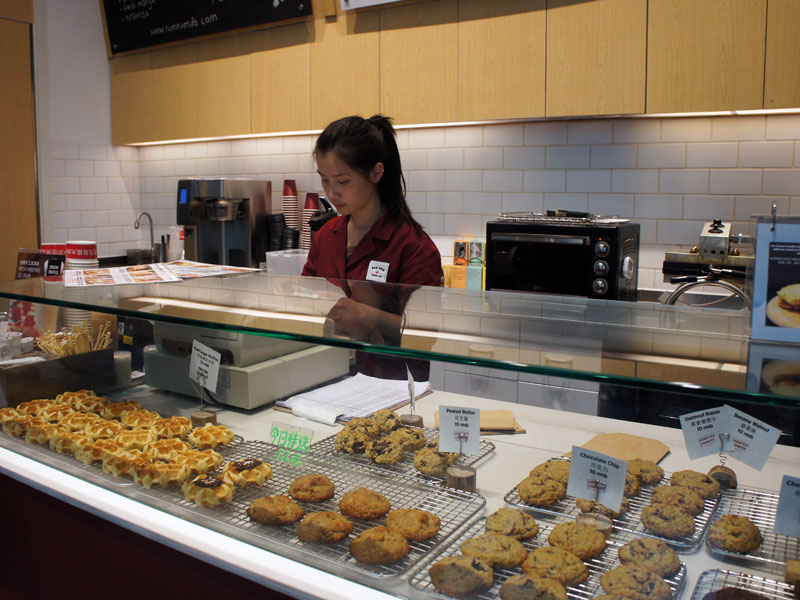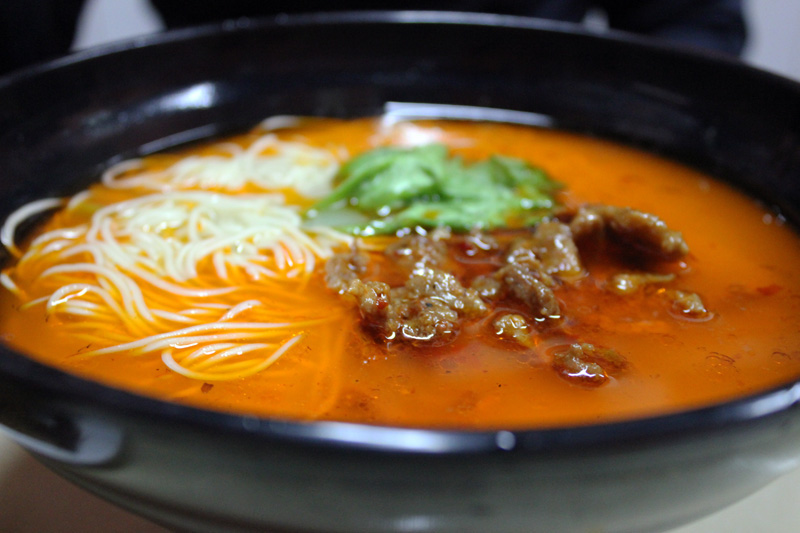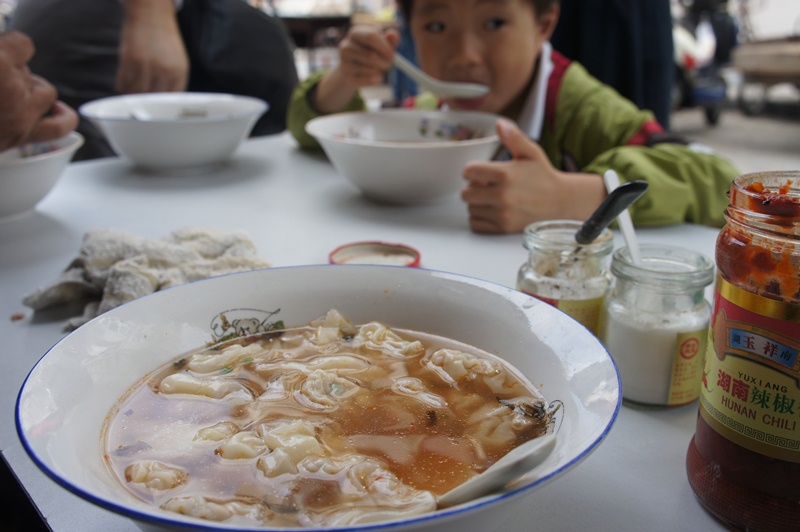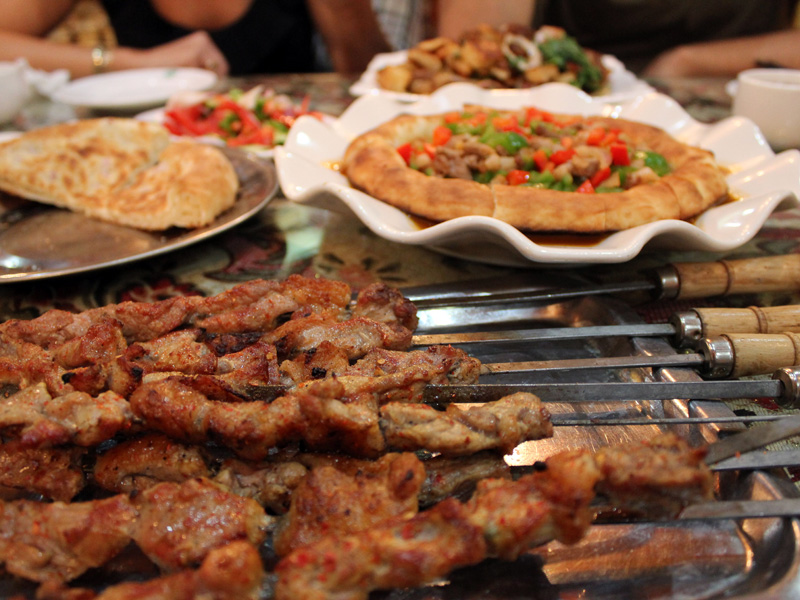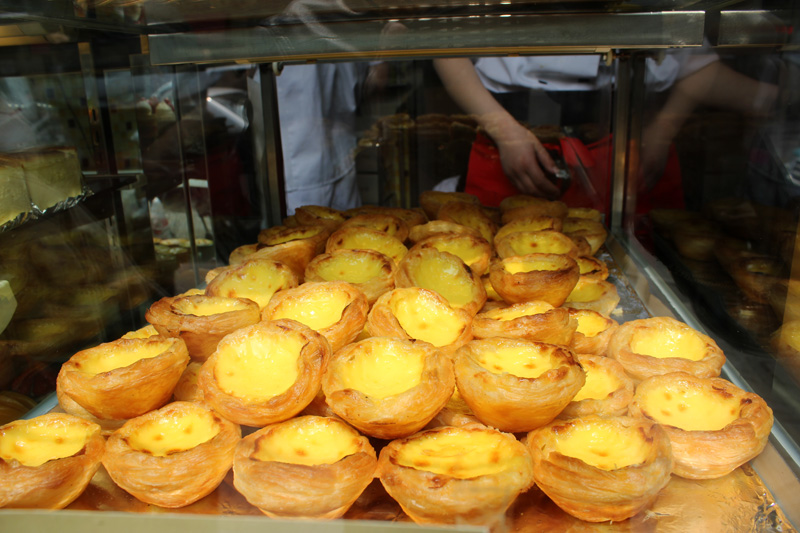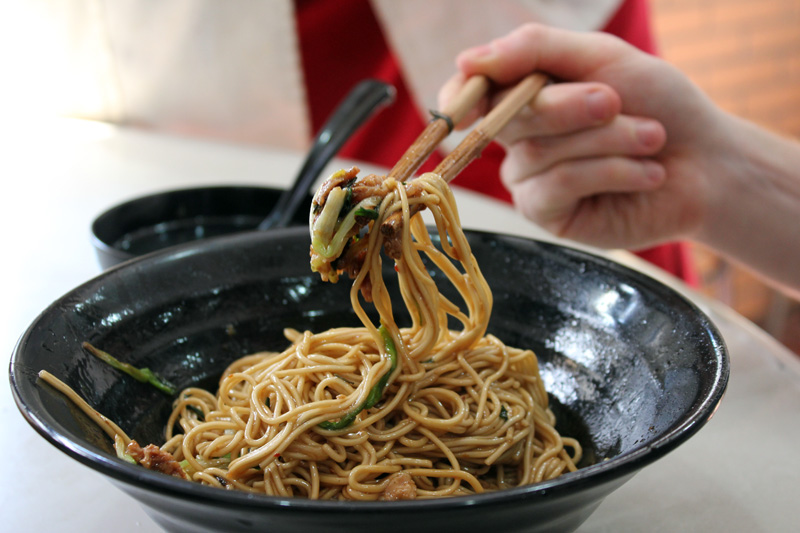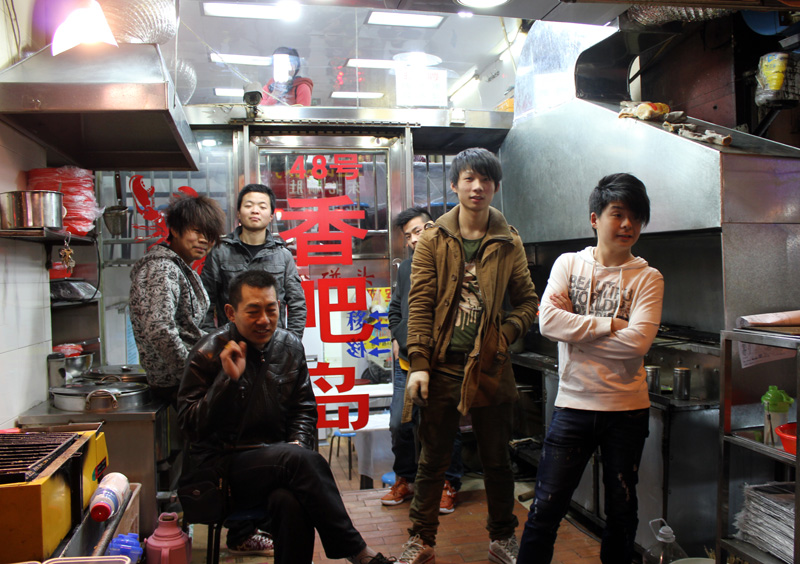We can't find the internet
Attempting to reconnect
Something went wrong!
Hang in there while we get back on track
Search results for "Kyle Long"
Shanghai
Nom Nom Dessert Bar: Cookie Monsters, Inc.
For years, expats in Shanghai complained about the lack of quality desserts in the city. Perhaps they just meant familiar desserts, as locals were more than happy to point them to delicious egg tarts, mooncakes or Taiwanese iced treats. But alas, when it came to sweets, there seemed to be a Great Wall-sized divide between East and West.
Read moreShanghai
Ding Te Le: The Late-Night Noodle Oasis
For a Chinese city as fast-paced and increasingly cosmopolitan as Shanghai, there are surprisingly few late-night dining options that don’t involve ordering from the roving, streetside pushcarts that hawk grilled skewers or fried rice and noodles. Unfortunately, these midnight vendors are not always where you want them to be when you need them most, after 10 beers. Enter Ding Te Le.
Read moreShanghai
Lu Dajie: Big Sister Knows Best
It’s not every day that you find a former national volleyball champ in the kitchen, but that’s just the case with Lu Dajie (aka “Big Sister” Lu) and her eponymous restaurants. After a successful career with the Chinese military’s volleyball team, followed by years working in restaurants for others, she left her hometown of Jianyang in Sichuan province with her brother, bringing her region’s famous cuisine with her. Now, in Shanghai, she is slowly building an empire.
Read moreShanghai
Baijiu: China’s Firewater
Drinking báijiǔ (白酒) always brings us back to our first illicit taste of hard alcohol – a shock to the system, going down fiery and leaving a shudder-inducing aftertaste on the tongue. And just as many first-time drinkers are left wondering where exactly the attraction lies, the same thing is true for baijiu – at least, until the aftereffects start to kick in. In fact, even the Chinese believe that one needs to drink 300 shots over time in order to truly understand the appeal of baijiu.
Read moreShanghai
Chenghuang Miao Tese Xiaochi: Divine (and Delicious) Madness
On the diner intimidation scale, Shanghai’s Chenghuang Miao Tese Xiaochi – which can be loosely translated as “City God Temple Snack Shop” – ranks pretty high, with aggressive lunchtime crowds and nothing but Chinese character-laden menus for guidance. But the payoff, a baptism by fire in authentic Chinese eating, is worth it. The hungry masses that congregate here have discovered a simple truth: the food here is quick, tasty and cheap – a gastronaut’s holy trinity.
Read moreShanghai
Lotus Eatery: Minority Cuisine Report
Ever since former President Deng Xiaoping opened China’s economic doors to the rest of the world starting in 1979, foreigners wishing to do business in China have had to find a local partner to form a joint venture company. Though no longer a hard-and-fast requirement, that’s still the modus operandi at Lotus Eatery, where a founding partnership brings together the best of both culinary worlds: unusual yet authentic local flavors and distinctly foreign notions of consistent quality and attentive service.
Read moreShanghai
Wei Xiang Zhai: One-Dish Wonder
Sometimes a word in Chinese so perfectly captures a mood or feeling that the English approximation seems woefully inadequate. To take one example, the Chinese combine “hot” (热) and “noise” (闹) to describe the loud and lively nature of local hotspots, but in English, the best we can do is “bustling.” To experience what China’s “hot noise” is really all about, head to Wei Xiang Zhai. Not for the claustrophobic or timid, this wildly popular noodle house demands that you elbow your way to a table for your chance to slurp down a bowl of the city’s best sesame paste noodles (麻酱面, májiàng miàn).
Read moreShanghai
Jian Guo 328: The Great Indoors
In Shanghai, there’s a time and a place for taking part in the city’s rough-and-tumble street food scene, but sometimes you want to eat out knowing that your bowl of noodles will not accidentally become someone’s ashtray or that you don’t have to elbow an elderly lady out of the way for a seat. Somewhere between the dive noodle stalls and the elegant confines of the city’s upscale banquet-style restaurants lies the holy grail of eating authentically: affordable local cuisine in a non-smoking, no grime, no-nonsense environment – with painted walls to boot! Meet the popular Shanghainese restaurant Jian Guo 328.
Read moreShanghai
Ji Xiang Cao - Lucky Zen: Keeping Pork at Bay
From a country that maintains a “national strategic pork reserve” – vast bunkers of frozen meat that can be released when the price of the commodity gets too high – one might not expect to find an impressive number of traditional vegetarian restaurants, but you’d be surprised. While exact numbers are hard to pin down in China, it is thought that around 20 percent of the Chinese consider themselves Buddhist, a number that tops out at around 280 million people. In culinary terms, that translates to hundreds of millions of would-be vegetarians – though, as in any religion, devotees interpret tenets at will, and most “vegetarians” in China enjoy a sprinkling of pork in their tofu to “add flavor.”
Read moreShanghai
Where Skyscrapers Loom, A Street Food Paradise Thrives
Earlier in 2012, Jing’an Villas – a square, block-sized 1930s-era housing area in the heart of downtown Shanghai – survived an ironic plan that called for permanently relocating all of its 3,000-plus residents in order to better “preserve” the historic neighborhood. Luckily, the plan was shot down in a party committee meeting. For now, at least, Jing’an Villas remains the perfect setting for trying longtang cai, simple, home-style alleyway food that features local favorites.
Read moreShanghai
Hunan Xiangcun Fengwei: A Taste of Chinglish
Dinner and a comedy routine isn’t a concept that has caught on in China. A few Sichuan restaurants feature a traditional show with the help of some loud music, a man with a flashy cape, and a mask with many thin layers that changes with a quick, hidden tug. But a Hunan restaurant? Never. At the popular neighborhood joint Hunan Xiangcun Fengwei, however, the finger-licking good food from Chairman Mao’s home province shares top billing with the subtle art of Chinglish menu translations that at first glance seem to defy explanation.
Read moreShanghai
Lao Shanghai Sanxian Xiao Huntun: Little Shop of Wontons
There is often some confusion when it comes to the many varieties of dumplings in Shanghai. The city’s most famous snack, xiǎolóngbāo, is a soup dumpling that neatly encases its broth inside a thin dumpling skin. It is not, as many first-time visitors assume, a dumpling floating in soup. For that, we turn to the humble wonton soup.
Read moreShanghai
Lanzhou Lamian: Noodles With Pull
Is there anything that warms the heart of a food-obsessed traveler more than civic pride in a local culinary specialty? In a country that more often celebrates a particularly polarizing political leader, the great affection among the people of Lanzhou for their famous noodles – which the city has reportedly even sought to trademark – gets our stomachs rumbling.
Read moreShanghai
Xinjiang Expedition: The Three States of Naan
The three states of naan may not have any political standing, but they do enjoy culinary representation at one of Shanghai’s finest Uighur restaurants, Xinjiang Yining Yuanzheng, aka Xinjiang Expedition. We’re talking bread without borders, dough diversity at its finest, and a refreshing change of pace from the Chinese staple grains of noodles and rice.
Read moreShanghai
Lillian Cake Shop: The Egg Tart, Perfected
Confucius once said, “The superior man is modest in his speech, but exceeds in his actions.” He clearly never met a food writer, because superlatives and immodest speech are basically all we have to work with. But had Confucius opened a small patisserie, it would probably be Lillian Cake Shop.
Read moreShanghai
Lao Difang: Oodles of Noodles
Does anyone say “use your noodle” anymore? Our grandparents used to admonish us with that idiom when we didn’t think a situation through, but the phrase seems to have mostly gone out of fashion along with polyester suits. However, deep in the former French Concession, one esteemed food vendor is definitely using her noodle to help her customers enjoy, well, noodles.
Read moreShanghai
Wei Xiang Zhai: One Dish Wonder
Sometimes a word in Chinese so perfectly captures a mood or feeling that the English approximation seems woefully inadequate. To take one example, the Chinese combine “hot” (热) and “noise” (闹) to describe the loud and lively nature of local hotspots, but in English, the best we can do is “bustling.” To experience what China’s “hot noise” is really all about, head to Wei Xiang Zhai. Not for the claustrophobic or timid, this wildly popular noodle house demands that you elbow your way to a table for your chance to slurp down a bowl of the city’s best sesame paste noodles (麻酱面, májiàng miàn). Don’t be intimidated by the Chinese-only menu here. It may look long and complicated, but over the years, the character for “sold out” (无) has become a permanent menu fixture, collecting dust and reminding diners that once, long ago, there were other options here.
Read more
